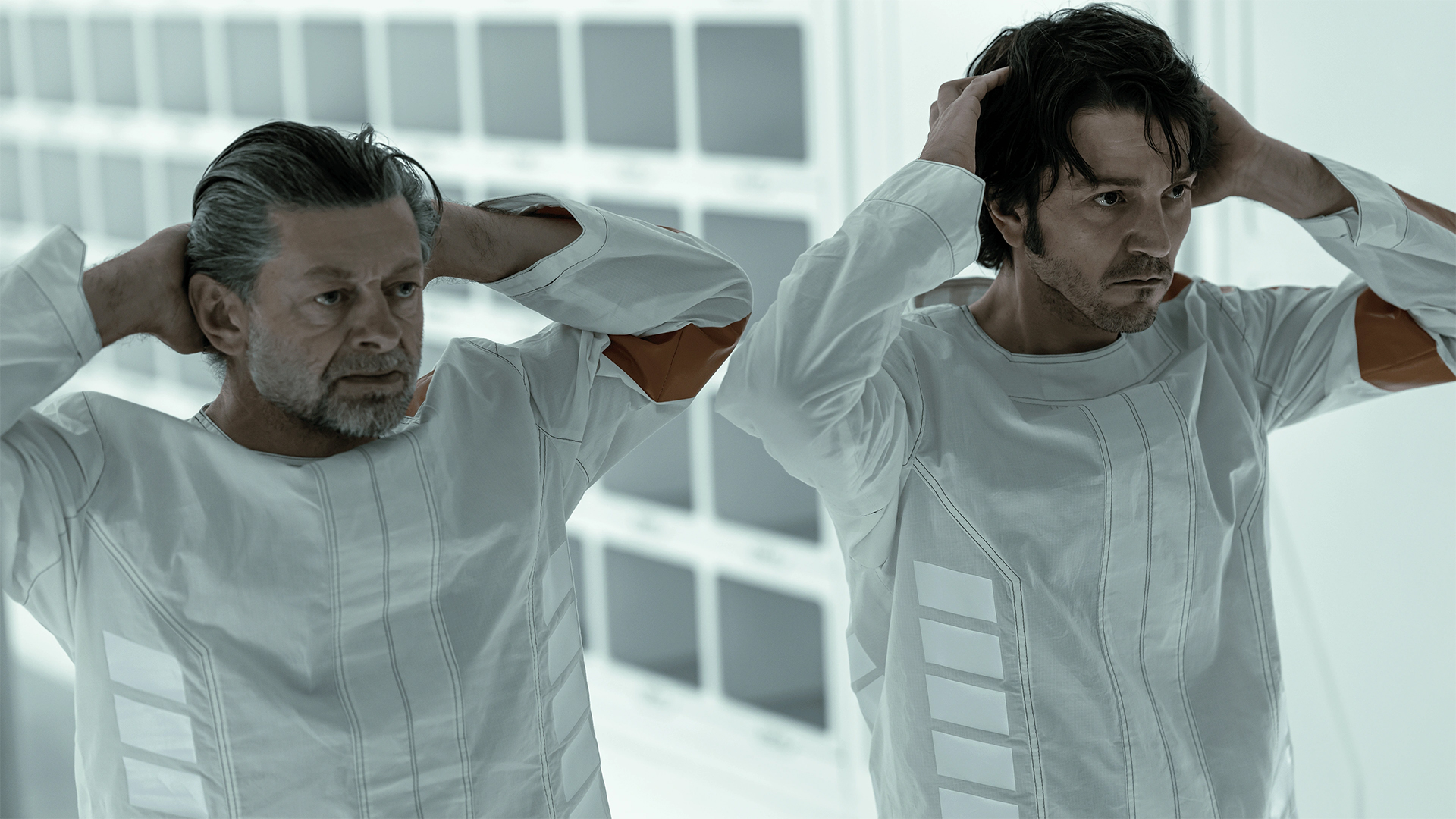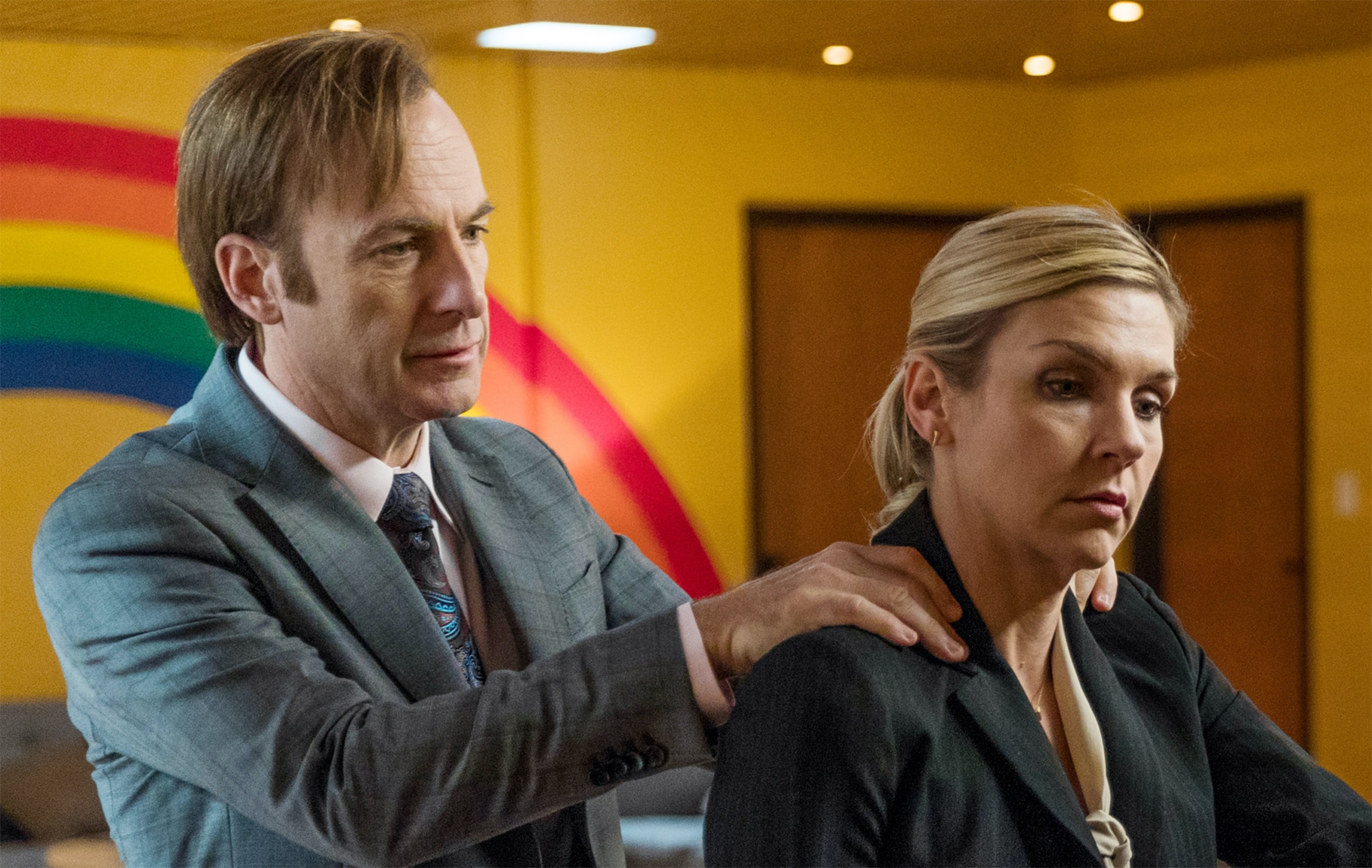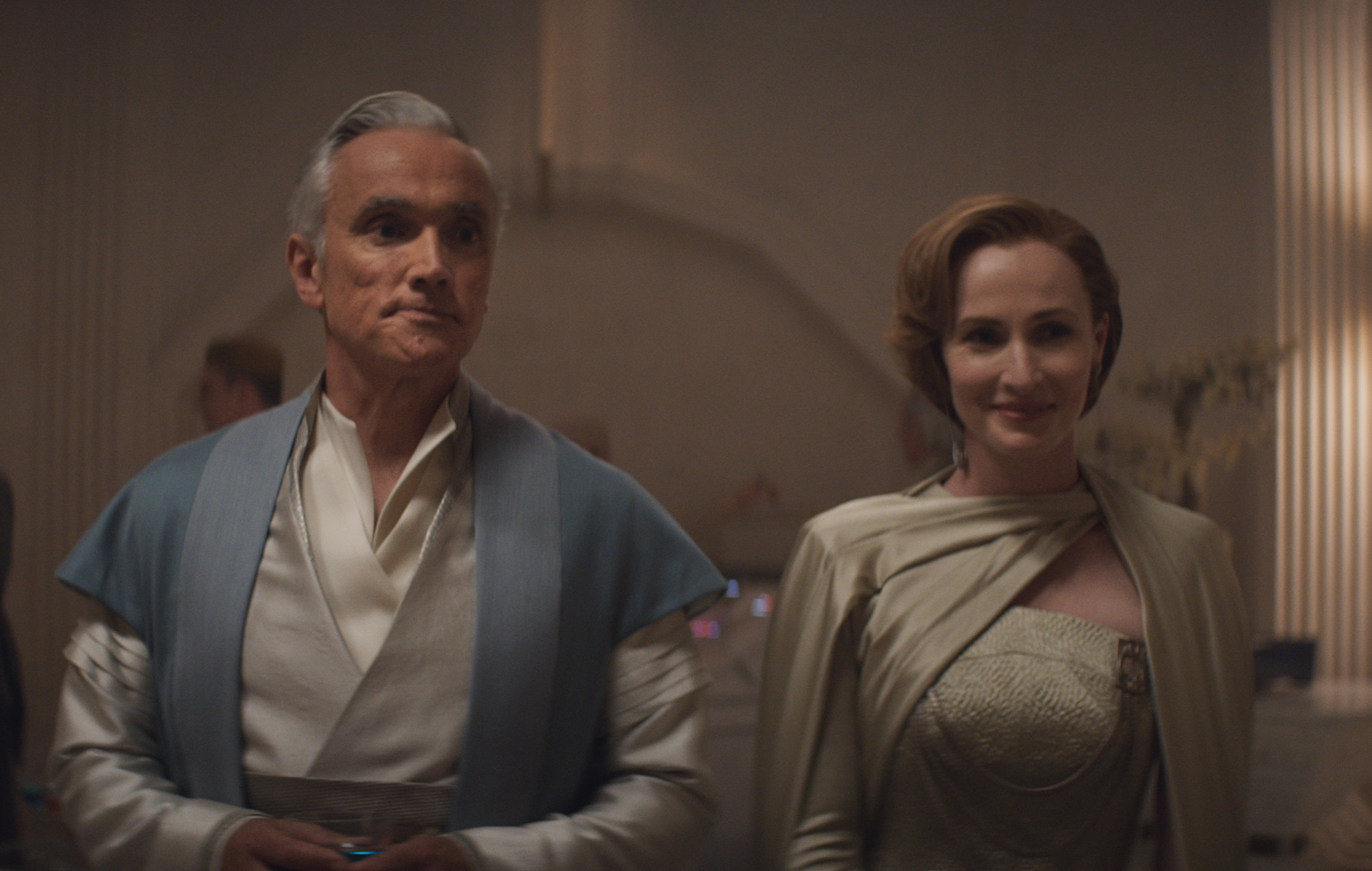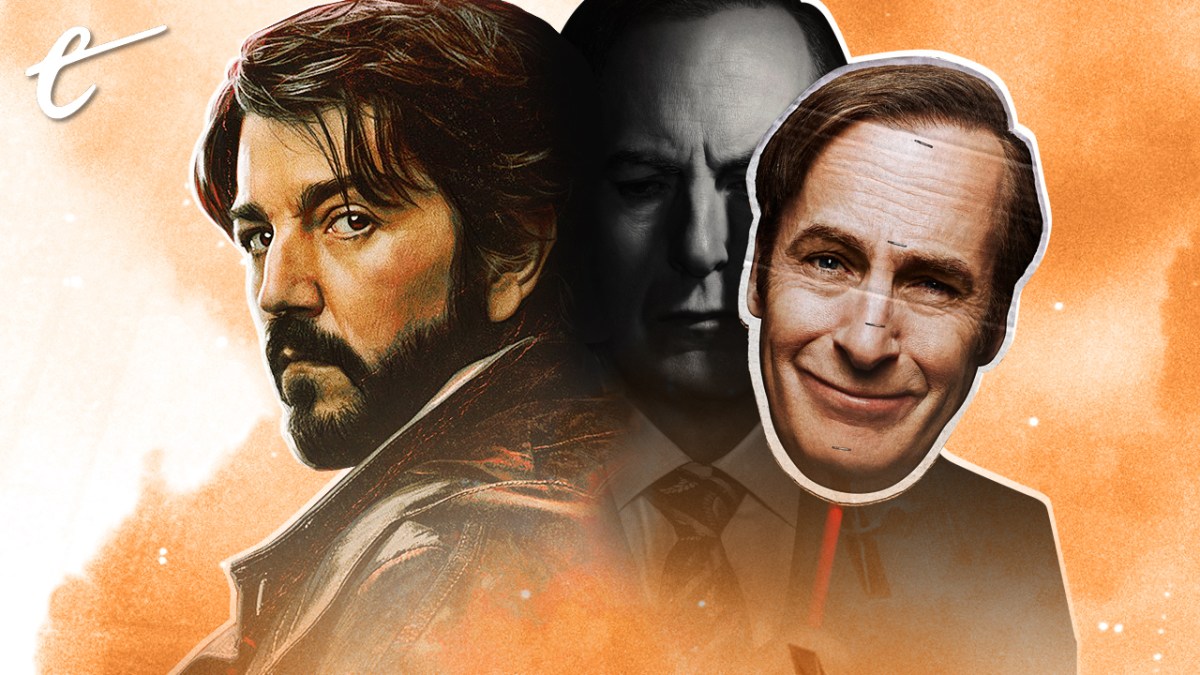Over the course of its first season, Andor has garnered considerable praise. It has been described as “the best thing to happen to Star Wars,” “the best live-action Star Wars show yet,” and “exactly what Star Wars has been needing.” Indeed, critics aren’t just celebrating Andor relative to other Star Wars multimedia like The Book of Boba Fett or Obi-Wan Kenobi, some contending that it is “the best series currently airing” or simply “the best TV series of 2022.”
However, the show has struggled to translate that popularity into ratings. Of course, streaming is an opaque art form, and viewership is often estimated by reference to metadata. Still, companies like Parrot Analytics and Nielsen suggest that Andor is performing reasonably rather than spectacularly. While there is some evidence that it is the most popular show on Disney+ at the moment, and the show’s popularity is growing, it has still underperformed other Star Wars shows.
To be fair, there is little cause for concern. Andor has already set a date to start shooting its second (and final) season, making a premature cancellation or a clumsy retool unlikely. Lucasfilm doesn’t seem worried. “So yeah, I think everybody’s happy with that,” showrunner Tony Gilroy stated when asked how Lucasfilm felt about the response to the show. “So the plan is that we’ll have a pretty long tail as we go, and everybody seems pretty pleased, unless you know something I don’t.”
Still, there is something frustrating about all this. Andor is the best Star Wars project in almost five years. It is also the best of the Disney+ streaming shows built around an established brand. It is ambitious television that never condescends to its audience. It pushes the Star Wars franchise in interesting directions that also feel like extensions of the original movie’s cultural context. It is a love letter to Star Wars but also the work of an artist with a distinct viewpoint.

In short, Andor is everything that a piece of modern franchise media could hope to be. It is both faithful to the existing body of work and a well-crafted piece of entertainment in its own right that doesn’t rely on cheap nostalgia to hook the audience. It avoids the “content soup” approach that drowned both The Book of Boba Fett and Obi-Wan Kenobi. This is great Star Wars and great television. People who care about either of those things deserve to watch it.
Of course, popularity does not directly correlate to quality. This year marks the 40th anniversary of the release of both The Thing and Blade Runner, two classics of modern science fiction that were only properly recognized in hindsight. The Transformers franchise has earned billions of dollars at the global box office with a string of poorly reviewed movies. Indeed, Bumblebee is both the best-reviewed film in the Transformers franchise and the lowest-grossing film in the series.
There is another recent television show that evokes Andor. This summer saw the end of Better Call Saul, the prequel spinoff from Breaking Bad based around the sleazy lawyer Saul Goodman (Bob Odenkirk). The shows have similar energies. Both are prequels, built on the audience’s knowledge of the fates of many cast members. When announced, both prompted questions of, “Who asked for this?” and debates over whether their leads were “substantial enough to sustain a whole show.”
Better Call Saul developed into one of the best and most compelling shows on television, in many ways a eulogy for the antiheroes of the so-called “Golden Age.” Indeed, as the show raced towards its conclusion, critics began to whisper something that would have been unthinkable when this prequel show about the money-laundering comic relief was first suggested, with many daring to question if (and even argue that) Better Call Saul was better than Breaking Bad.

Sadly, Better Call Saul never performed as well as Breaking Bad at various industry metrics. Despite a strong debut, Better Call Saul’s ratings quickly slipped below comparable viewership figures for its predecessor. Breaking Bad was one of the most awarded shows in the history of the Emmys, taking home 16 prizes from 58 nominations. Despite 46 nominations across its six seasons, Better Call Saul never took home a single statue.
Interestingly, there is even an overlap in the criticisms of Better Call Saul and Andor. The more common complaints about Andor alleged that the series is too “slow,” that it doesn’t have enough momentum or action to maintain the audience’s interest. This recalls criticisms of the early seasons of Better Call Saul, which Spencer Kornhaber decried as “very slow.” Both shows are certainly paced more deliberately than their predecessors.
This is a feature, not a bug. “I’ve watched a lot of TV that moves so quickly it detaches me from the story at hand,” complained Better Call Saul co-creator Vince Gilligan in an interview in April 2017. He insisted that there was “room for slower-paced stories” on television “as an antidote to everything else.” It makes sense. Perhaps reflecting technological innovations or shortened attention spans, a lot of recent media prioritizes speed ahead of everything else: character, theme, mood.
Better Call Saul is a show that is built around that tension. As a character, Saul is defined by his lack of patience. Saul is smart and hard-working but cannot resist a shortcut. As such, the show’s more relaxed pace serves as a contrast to the high energy of its lead character. Better Call Saul is a show fascinated with process, often devoting extended montages to illustrate the care and craft (and mundanity) of a job well done, often to contrast with Saul’s more energetic alternatives.

Better Call Saul takes its time to build out its world and its characters. In fact, Better Call Saul spends more time with some of its returning cast members like Victor (Jeremiah Bitsui) or Hector (Mark Margolis) than Breaking Bad did. Over the six seasons of Better Call Saul, the writers build a rich and complicated universe, which only enriches the tragedy of Breaking Bad as the story of Walter White (Bryan Cranston) as a hurricane sweeping through the Albuquerque underworld.
Andor does something similar. Like Better Call Saul, Andor is fascinated by systems and structures, engaged with the idea of how this fictional world must work. Over its first season, Andor has taken its time to explore what exactly makes the Empire such a horrifying construct, interrogating the organization as an imperialist, capitalist, and carceral state. Over the show’s first year, the audience gets to understand not only the Empire’s infrastructure, but how that warps and shapes individuals.
Gilroy argues that this was never a conscious plan. Asked about Andor’s fascination with the “nitty gritty” of fascism, he explained this was just how he works as a writer: “I mean, I don’t have another way of doing it.” It certainly fits with Gilroy’s fascination with large bureaucracies and overzealous middle-managers in the Bourne franchise and Michael Clayton. Characters like Syril Karn (Kyle Soller) and Dedra Meero (Denise Gough) feel like distant cousins of Karen Crowder (Tilda Swinton).
Ironically, the Bourne films redefined modern action cinema with their frantic editing and shaky-cam style, largely driven by directors like Doug Liman and Paul Greengrass. However, Andor is closer in pace and tone to Michael Clayton, which makes sense given that Gilroy directed Michael Clayton. Toby Haynes has conceded that, while Gilroy afforded directors a lot of freedom on Andor, there were also points where he had “very specific ideas about the kind of shots” he wanted.

As Michael Clayton demonstrates, Gilroy is a storyteller heavily influenced by 1970s American cinema, and that influence is obvious on Andor. Better Call Saul was also heavily rooted in movies from that era, specifically Paddy Chayefsky’s Network and Bob Fosse’s All That Jazz. In this sense, both Andor and Better Call Saul hearken back to the prestige shows of the “Golden Age of Television,” from The Sopranos to Mad Men, which were also “inheritors” of that cinematic legacy.
In this sense, perhaps Andor and Better Call Saul are best understood as shows somewhat out of time. Modern television is transitioning away from this sort of storytelling. Whether the medium chases or shapes the culture is up for debate, but audiences are too. This has no bearing on the quality of the shows themselves, but it might also suggest why they’ve failed to catch the public’s attention despite the obvious craft and quality on display.
They might be two of the best shows to air on television this year, but they are also not what the zeitgeist wants right now. That is fine. While it is a cliché to point out that genius isn’t always appreciated in its own time, there is truth in the argument that great art withstands the test of time. If work doesn’t resonate with mass audiences on release, its reputation will grow. The zeitgeist will change, but Better Call Saul and Andor will always be excellent.






Published: Nov 15, 2022 12:00 pm